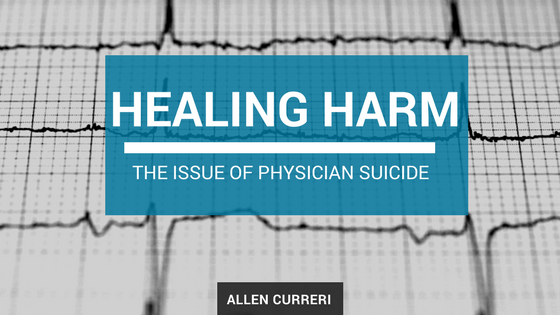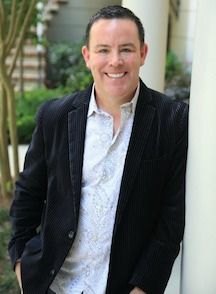“Heard joke once: Man goes to doctor. Says he’s depressed. Says life seems harsh and cruel. Says he feels all alone in a threatening world where what lies ahead is vague and uncertain. Doctor says, ‘Treatment is simple. Great clown Pagliacci is in town tonight. Go and see him. That should pick you up.’ Man bursts into tears. Says, ‘But doctor…I am Pagliacci.’”
-Alan Moore, Watchmen
I’ve found myself caught on Pagliacci’s story for a while now. The question it asks is as simple as it is pointed: Where does the clown go for cheer when he falls into depression? Should he gravitate towards other clowns for solace? Can he even peel off the mask and join the audience without losing his own cheerful identity?
I’m not really thinking about clowns. As a medical researcher, I’ve spent years studying the impact of technology on physician’s mindfulness and decision-making in hospitals and have realized the damage physician burnout can cause to a doctor’s mental health. Stress, burnout; the terms imply suffering and anxiety – even depression. But until recently, I hadn’t understood just how deadly they could be. According to an article published on Medscape in 2017, approximately 400 doctors and medical students die at their own hand every year, putting their suicide rate at roughly twice that of the general population. Suicide is a near-epidemic in the medical community; yet, despite rising awareness about the danger of burnout and physician depression, many prominent voices in medicine shy away from discussing the deadly risk the conditions pose. But the problem is real and present – and casting back to Moore’s story, I wonder if we aren’t unintentionally forcing our doctors into the Pagliacci’s isolation.
Think about it. No matter how old or jaded we become, we expect our doctors to put up a “character” of calm reassurance. We step into the waiting room with a sense of cautious relief – as though being in the office is the first step towards removing the burden of our medical anxieties. We have the utmost certainty that our doctors will be stoic and certain as they heal our traumas and treat our illnesses. After all, doctors live and work within environments where stoicism and cool detachment are encouraged – if not expected – as “professional” traits. But doctors who keep themselves detached tend to experience depression and PTSD at higher rates than those who don’t – thus making the very expectation of stoicism toxic to the doctors who treat us. While they may not wear bright clothing or paint like Pagliacci, physicians need to adopt a professional “identity” to do their jobs; and as with Pagliacci, their disguises can be difficult to peel off when the individual beneath needs help.
Part of the problem rests in the stigma mental health care still holds in our society. As one doctor comments in an article on treating physician mental health: “[Depression] is not that different, medically, from somebody who has a heart condition. But people don’t look askance at someone with a heart condition.” People in other professions might hide their treatment out of fear that their family and friends might judge them poorly. Doctors, on the other hand, often hide out of fear that their colleagues and patients might think them unfit to practice medicine. The doctor quoted above goes on to explain how he sometimes went so far as to let doctors slip in through the back door so that the health professionals and patients in the lobby wouldn’t see them come in for counseling. Physicians such as these worry that if someone recognizes them, their search for care might become a black mark on their record and ultimately lead to the revocation of their license. They see medicine as a core part of their identities; to lose the ability to practice would be professionally and personally devastating. As a preventative measure, they fix a stoic mask over their mental health concerns and try to handle the problem alone – only making the issue worse in the long run.
The issue of disclosure is a significant one, because many doctors aren’t sure what information is or isn’t confidential. In the past, most states asked applicants if they had a mental health condition. The question makes sense on the surface: licensers want to make sure that they don’t give medical authority to someone who might not be emotionally capable of handling the job’s burdens. But the language only dissuaded physicians from seeking mental health care, rather than helping parse the candidate pool for potential problems. In recent years, some states have taken strides to promote care positivity and disclosure; Washington state, for example, changed their language to ask “if [applicants] have ever had a drug, alcohol or mental health problem that is not already known to the physicians health program.” This language takes strides to accept and normalize mental health conditions in doctors – however, it isn’t nearly as widespread as it should be. A 2009 study published in the Journal of the American Academy of Psychiatry and Law found that over “two-thirds of allopathic state physician license applications had questions pertaining to mental health or substance use that were possibly or most likely impermissible under the Americans with Disabilities Act.” To make matters worse, license applications are established in public record in many states; a doctor’s personal struggles could potentially be left open to public scrutiny and judgement. Untreated depression can lead to significant issues in a physician’s personal and working life – but under these vulnerable circumstances, who would want to disclose their psychological conditions?
We need to strike a systemic balance that protects both patients and physicians. As the situation stands now, doctors are hiding their mental health battles under a calm veneer, afraid that reaching for help could mean the end of their career. We must stop seeing physicians solely through their coolly untouchable personas, and start respecting that they sometimes need help to work through the emotional and psychological demands of their profession. If we intend to save our doctors, we need to recast their environment into one that acknowledges mental health struggles as a norm, rather than rejects them as a weakness. If we don’t, we leave our health professionals in Pagliacci’s spotlit isolation: crumbling alone under the weight of others’ expectations.


